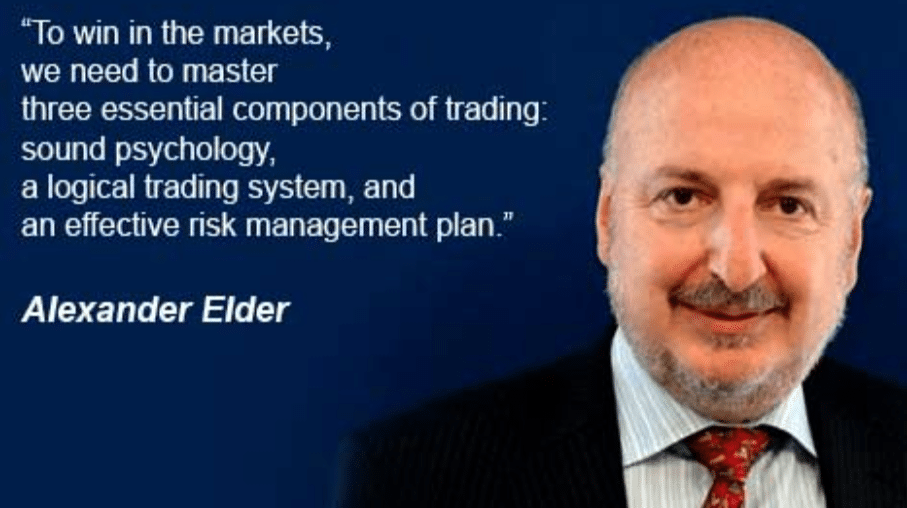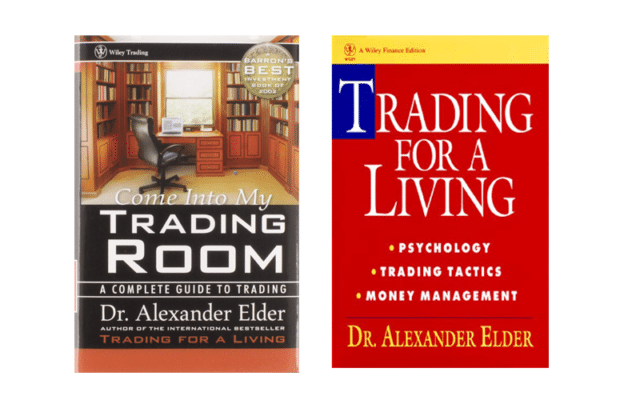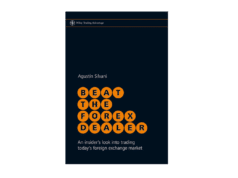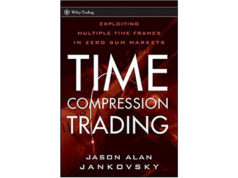The three Ms concept comes from a book by Dr. Alexander Elder, one of the most respected investors and trading psychology teachers on the planet. Despite only being published in 1993, ‘Trading for a Living: Psychology, Trading Tactics, Money Management’ is considered a modern classic and an international bestseller.

The book covers many advanced concepts relating to volume, open interest, Elliot Waves, and indicators like Moving Averages and oscillators. A more meaningful portion of the book deals with the ‘three Ms,’ which we can see partly referenced in the book title; psychology (mind), trading tactics (method), and money management (money).
Dr. Elder goes in-depth about avoiding the emotional traps of trading, using the most robust technical methods, and practicing strong money management. The author also explored the same thoughts in the 2002-released book entitled ‘Come into My Trading Room: A Complete Guide to Trading.’
Ultimately, mind, method, and money form the ‘three-legged stool’ any profitable trader sits on to maintain their success in the market. One needs to master all three of these factors simultaneously without compromising on either. Let’s break down these pillars in more detail.
The mind
The mental aspect of prosperous trading boils down to emotion and psychology. It’s all about a trader’s mindset from before they open a trade when a position is live and the eventual outcome.
It begs the question of what encompasses a conducive mindset. Firstly, it is about controlling one’s emotions, particularly those of fear and greed. Having some level of fear is healthy as it constantly reinforces the inherent risk of ruin in such a speculative environment as currencies.
However, being too fearful is unhealthy because there is no chance to make money without taking any position. Having greed in the markets is detrimental and leads traders to lose a large portion of their accounts or blow them completely.
Ultimately, the overarching trope of the mind is purely self-control and resisting temptation. Online trading has made it easy for anyone to press the buy or sell button. Instead of believing every trade will make someone money all the time, it’s more about practicing the ‘art of losing.’
Here are the other crucial aspects to developing a proper trading mindset:
- Thinking in probabilities rather than absolutes: Nothing is for certain in trading. Successful traders are constantly dealing with uncertainties and have accepted the environment as such.
- Having realistic expectations: While it is theoretically plausible to turn $100 into $10 000 quickly, the realities of achieving it are far different. Being grounded in reality and accepting that building an account is a slow process is necessary for any trader.
- Having patience: Of all the character traits, patience is perhaps the most important and embodies virtually everything regarding trading.
The money
The money pillar is all about a trader’s ability to properly count because, in truth, trading is essentially a numbers game. Successfully and continually mitigating losses and maximizing profits is the decisive objective.
So, what’s involved here? Well, one of the fundamental money ideologies is the risk to reward. Every profitable trader weighs up the potential of the two before every position. If the possible outcome is marginally greater than the risk, this may represent a trading opportunity.
Getting to this stage requires capital preservation. A successful trader knows when to preserve their money only for what they deem as the best opportunities. They understand how to filter the wheat from the chaff.
When the right setup comes along, the trader should have enough money to execute the position. Moreover, it’s about knowing precisely how much to risk through appropriate position sizing and learning how to set stops allowing enough time and room for the market to invalidate a trading idea.
Furthermore, it’s also about factoring any drawdown periods to ensure one is still in the game when their signals produce losses. What happens after someone places a trade is another crucial factor, which is essentially trade management.
A profitable trader will know how to logically react when a position is in profits by moving their stop to predefined levels for securing profits and the most efficient way of securing gains.
The method
As expected, the method is about how someone trades in forex or, more specifically, the strategy. Each trader has certain ‘weapons’ in their ‘trading arsenal,’ comprising a bunch of indicators, patterns, and other techniques.
The method is about knowing what you’re doing, why, how, and when. Firstly, you have to define whether you trade discretionary or using an automated trading system. Secondly, it’s about understanding the type of trading style, namely scalping, day trading, swing trading, position trading, or even news trading.
Some traders cannot define themselves through this approach which is detrimental since they cannot align this with their inherent personality and preferences. A gazillion number of profitable strategies exist when traded by the right person using them on the appropriate time-frames and trading style.
Although trading methods are plentiful, equally important is testing these and their effectiveness over the long run. We refer to this process as backtesting and forward testing, which should happen over at least a year on a demo account.
Testing a strategy is paramount for two reasons; gathering performance data and identifying its strong and weak points. Both of these are useful to prepare a trader for the live markets and prevent them from changing their system when things don’t go as desired.
Final word
Interestingly, neither mind, money, and method follow an order of importance; the mind is not more important than money, nor is the method the least significant of them all. Essentially, the three Ms should work in unison, similar to a machine with many moving parts.
It is of no use to have the right psychology if a trader’s money management is innately poor. Another discrepancy is traders who are highly technical in charting but fail dismally with handling emotions.
There are various ways to interpret how lacking any of these proficiencies is a recipe for disaster. The three Ms concept reinforces how difficult it is to become profitable, particularly as a retail trader.
Therefore, to truly succeed means to master all of these pillars simultaneously without skimping on any.




